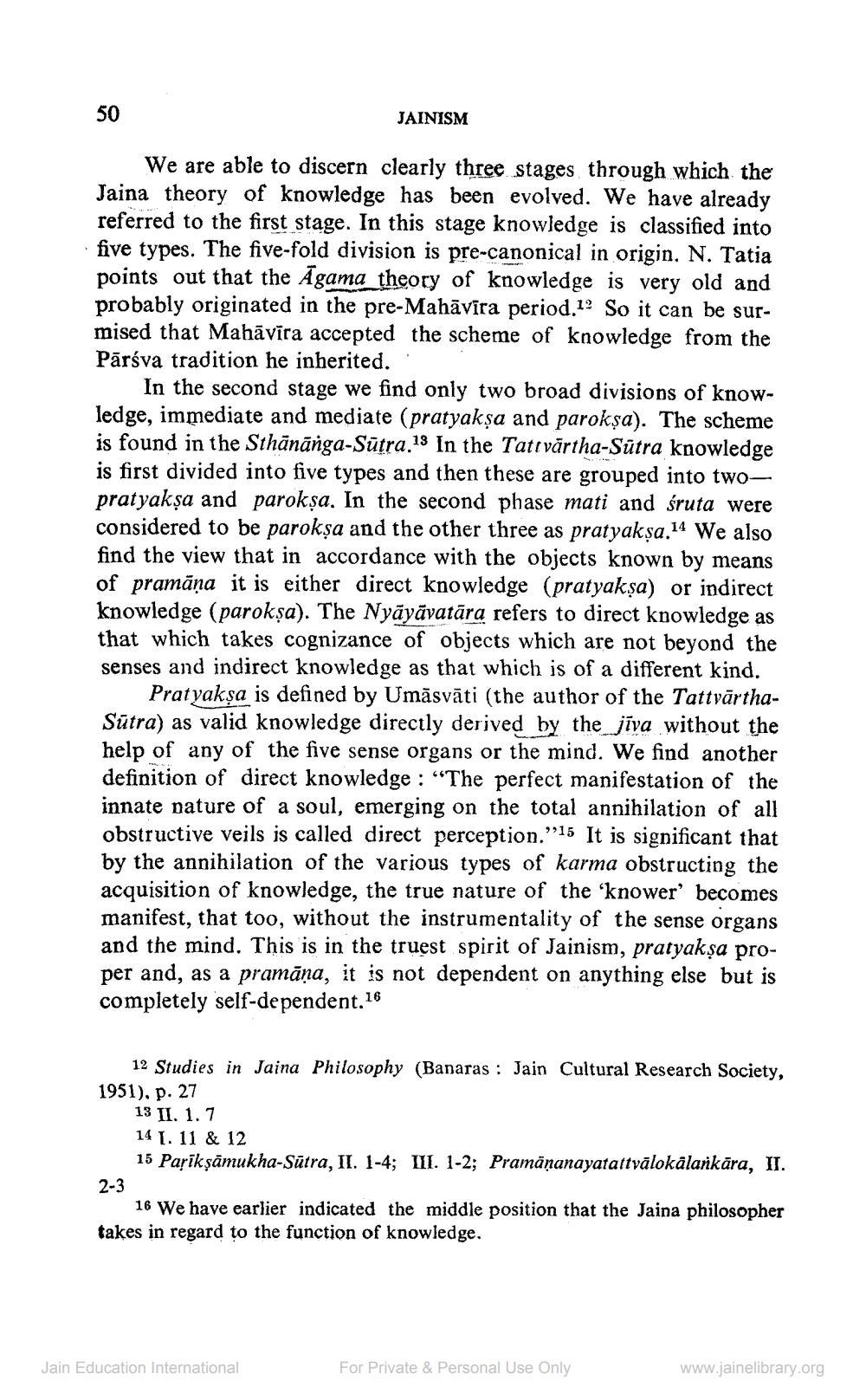________________
50
JAINISM
We are able to discern clearly three stages through which the Jaina theory of knowledge has been evolved. We have already referred to the first stage. In this stage knowledge is classified into five types. The five-fold division is pre-canonical in origin. N. Tatia points out that the Agama theory of knowledge is very old and probably originated in the pre-Mahavira period.12 So it can be surmised that Mahavira accepted the scheme of knowledge from the Parsva tradition he inherited.
In the second stage we find only two broad divisions of knowledge, immediate and mediate (pratyakṣa and paroksa). The scheme is found in the Sthänänga-Sutra.18 In the Tattvärtha-Sutra knowledge is first divided into five types and then these are grouped into twopratyakṣa and parokṣa. In the second phase mati and śruta were considered to be parokṣa and the other three as pratyakṣa.14 We also find the view that in accordance with the objects known by means of pramāņa it is either direct knowledge (pratyakṣa) or indirect knowledge (parokṣa). The Nyāyāvatāra refers to direct knowledge as that which takes cognizance of objects which are not beyond the senses and indirect knowledge as that which is of a different kind.
Pratyakṣa is defined by Umãsvāti (the author of the TattvärthaSūtra) as valid knowledge directly derived by the jiva without the help of any of the five sense organs or the mind. We find another definition of direct knowledge: "The perfect manifestation of the innate nature of a soul, emerging on the total annihilation of all obstructive veils is called direct perception."15 It is significant that by the annihilation of the various types of karma obstructing the acquisition of knowledge, the true nature of the 'knower' becomes manifest, that too, without the instrumentality of the sense organs and the mind. This is in the truest spirit of Jainism, pratyakṣa proper and, as a pramāņa, it is not dependent on anything else but is completely self-dependent.16
12 Studies in Jaina Philosophy (Banaras: Jain Cultural Research Society, 1951), p. 27
13 II. 1. 7
14 L. 11 & 12
15 Parikṣāmukha-Sutra, II. 1-4; III. 1-2; Pramäṇanayataṭṭvālokālaṁkāra, II.
2-3
16 We have earlier indicated the middle position that the Jaina philosopher takes in regard to the function of knowledge.
Jain Education International
For Private & Personal Use Only
www.jainelibrary.org




